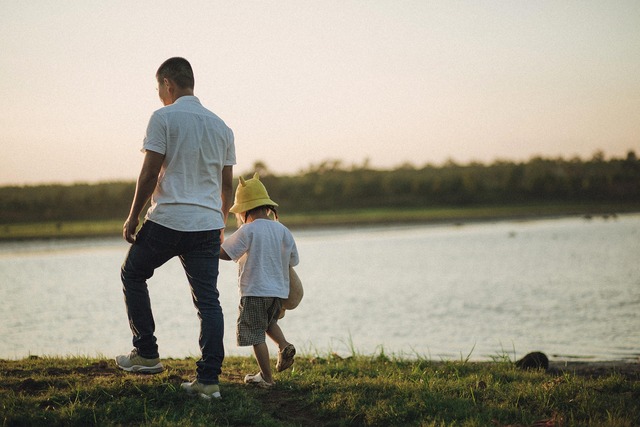I am sitting in a room full of men.
Their ages vary from early twenties through to fifties.
A room full of men has a unique energy; it is a little tense, but focused.
I have learned over the years to really like this work; the care and nurturing of fathers is part of my mission in life.
What is new – and impressive – is how many of them show up on these nights, willing to give it a go.
When we have settled in a bit and they have begun to trust me, I ask a question: You are here because you want to be a better dad. So, how do you get along with your own dad?
The room falls silent.
I call this the hand grenade question. It is like I have lobbed a hand grenade into the room – the emotional kind, not the explosive kind.
Some of the men look angry, and they are the ones to speak first.
They declare – one by one – that they barely speak to their fathers, they hate them.
He belted them as a kid, or is sarcastic and cutting, or walked out on their mum, and so on.
Hands up, I ask, those who hardly ever speak to their fathers.
A third of the hands in the room go up. It’s a shocking figure.
Another group starts to speak, this time not so intensely.
They see their dads on family occasions, birthdays, and so on.
What is it like, though? It’s prickly, they say, not easy. Warm words do not flow, there are no hugs. Criticism hangs in the air like it’s their father’s only language. The relationship exists, but it’s ‘cactus’.
Another, more sad and flat-sounding group among the audience sees their fathers quite a lot. Once a fortnight, that kind of thing.
Family visits to their parents’ home. Checking in on them. But something is missing.
It’s dutiful. Not fun. Not real, in fact. Even an argument would be more satisfying!
Finally, there are some men who have not spoken. I have had my eye on them, saving them for last. And one of them speaks.
“Well,” he says, almost apologetically.
“I have held back because I heard the pain in the men who spoke.
“It felt wrong to speak up. But my dad is great. He really loves us and he shows it.
“I couldn’t design a better dad than my dad is.
“He surprises me.
“It’s not that we always see eye to eye. We have our clashes sometimes.
“But the fact is, if I have trouble or worries, I always go and talk to my dad. I know he is ‘on my side’ in life.
“I know I will feel it very badly when he is no longer around.”
There are wet eyes in the room – I can see them glinting from where I am sitting – for many different reasons.
Our culture has many problems, some visible and some hidden.
This is, I think, one of the biggest; the source of so many other things that make the headlines: violence, suicide, marriage breakups, harm and hurt caused and created by men.
Roberty Bly called it The Father Wound. Like a Grand Canyon running through the 20th century, when wars and depressions and industrialisation shattered the links between boys and men. Between men and their own emotions.
Gradually, this is softening, the tears and wounds coming to the surface to heal.
If your husband or partner struggles with life, ask him how he got on with his father.
Perhaps he could even talk to his father, before it is too late, to heal the wounds which were inadvertent, mistaken, and just the product of terrible times.
Often, people were doing their best.
I am so pleased and proud of the fathers of today who are warm and hands-on, funny and kind to their kids, so they never have to suffer this wound.
Steve Biddulph wrote The New Manhood, Raising Boys, Raising Girls, and, just recently, a book about healing anxiety called Wild Creature Mind.








